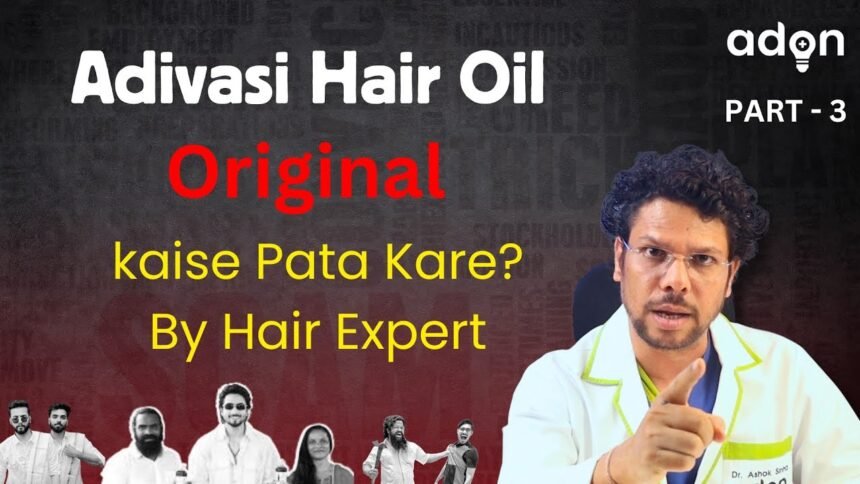The digital age has created a new breed of icons, with celebrities and social media influencers wielding incredible power over millions of followers. What they endorse, the masses follow. However, with great power comes great responsibility—something that several high-profile names seem to have forgotten in the case of the infamous ‘Adivasi Hair Oil’. Celebrities like Sonu Sood, Elvish Yadav, Kiku Sharda, Farah Khan, Dr. Vivek Bindra, Sonu Sharma, and popular influencer Mr. Indian Hacker, among others, have recently found themselves embroiled in a controversy that has shaken the trust of their fans and exposed a worrying trend of unchecked endorsements. This article delves into the scandal, the broader implications of such promotions, and the responsibility that comes with influence in the modern world.
Table of Contents
The Rise of Influencer Culture and the Power of Endorsements
Social media has transformed the way people communicate, interact, and even consume products. Platforms like Instagram, YouTube, and TikTok have enabled ordinary individuals to become influencers—people who can shape public opinion and trends with a single post. Similarly, celebrities have taken to social media to engage with fans more directly than ever before.
Over the years, brands have recognized the immense value of these influencers and celebrities. With millions of loyal followers hanging onto their every word, an endorsement from a well-known figure can skyrocket a product’s sales overnight. However, this marketing tactic, while highly effective, also carries significant risks—particularly when the product being endorsed hasn’t been thoroughly vetted.
In the case of ‘Adivasi Hair Oil’, the endorsement by celebrities and influencers gave the product a level of legitimacy that it may not have otherwise achieved. Fans trust these figures, often believing that the products they promote are safe and effective. But what happens when this trust is broken?
The ‘Adivasi Hair Oil’ Controversy: A Scam Unveiled
‘Adivasi Hair Oil’ was marketed as a miracle product—an oil that could purportedly cure a range of hair problems, from hair fall to baldness. The product’s branding leaned heavily on the notion of traditional tribal wisdom, which added an element of authenticity to the claims. Celebrities like Sonu Sood and Elvish Yadav promoted the oil through glowing testimonials, often in interviews or vlogs, further fueling its popularity.
However, as the product reached more consumers, reports began to surface about its ineffectiveness and, worse, its harmful effects on users’ health. Complaints of scalp irritation, hair thinning, and other adverse effects started flooding social media. People who had trusted the endorsements of their favorite stars felt betrayed.
The situation took a dramatic turn when Dr. Ashok Sinha, a well-known trichologist and hair transplant surgeon, publicly exposed the product as a scam. In a viral video, Dr. Sinha laid out the scientific reasons why the oil was not only ineffective but potentially dangerous. His revelation sent shockwaves through the industry, raising serious questions about the role of celebrities and influencers in promoting such products.
Broken Trust: The Impact on Fans
One of the most significant consequences of the ‘Adivasi Hair Oil’ scandal is the breach of trust between celebrities and their fans. When a celebrity endorses a product, they are, in effect, lending their credibility to that product. Fans, particularly younger or more impressionable individuals, often take these endorsements at face value, believing that if their favorite star is using a product, it must be safe and effective.
The backlash from the ‘Adivasi Hair Oil’ controversy has been immense. Social media platforms like Instagram, YouTube, and Twitter have been flooded with angry comments from users who feel misled. Many people have shared their personal experiences, describing the adverse effects they suffered after using the product. Despite the outcry, there has been a noticeable silence from the celebrities involved, further fueling the frustration of their fans.
This lack of accountability has only worsened the situation. Fans expect transparency and honesty from the people they admire, and when that trust is violated, it can have long-lasting repercussions. The damage caused by such incidents extends beyond just the loss of trust in a single product—it can erode the public’s faith in the entire influencer and celebrity endorsement industry.
The Legal and Ethical Implications of False Endorsements
The ‘Adivasi Hair Oil’ controversy raises important legal and ethical questions about the responsibilities of celebrities and influencers when promoting products. In many countries, there are laws in place that require endorsements to be truthful and not misleading. However, in the fast-paced world of social media, these regulations are often overlooked, leading to situations like this one.
Dr. Sinha has called for stricter regulations on endorsements, particularly when it comes to health-related products. His argument is that if a product is proven to be harmful or fraudulent, those who endorsed it should also be held accountable. After all, their influence is a significant factor in the product’s success. But the legal system around influencer marketing is still evolving, and it remains to be seen whether these celebrities will face any consequences.
There is also the ethical dimension to consider. Celebrities and influencers have a moral obligation to their followers to ensure that the products they promote are safe and effective. In the case of ‘Adivasi Hair Oil’, it appears that the endorsements were made without proper due diligence, resulting in serious harm to consumers.
The Role of Tribal Communities in Marketing
One of the more complex aspects of the ‘Adivasi Hair Oil’ scandal is the use of tribal communities as part of the product’s branding. The term “Adivasi” refers to India’s indigenous people, who have historically been marginalized and exploited. By associating the product with traditional tribal wisdom, the marketers of ‘Adivasi Hair Oil’ were attempting to add a layer of authenticity and natural appeal to the product.
While there is nothing inherently wrong with celebrating indigenous knowledge, the way it was used in this case raises serious ethical concerns. Dr. Sinha himself expressed sympathy for the tribal communities, acknowledging that the promotion might have been seen as a way to uplift them economically. However, he also stressed that using their name to promote a harmful product is unacceptable.
The exploitation of tribal communities in marketing is not a new phenomenon. Across the world, indigenous knowledge and culture are often appropriated for commercial gain, with little to no benefit to the communities themselves. In the case of ‘Adivasi Hair Oil’, it is unclear whether any tribal groups were actually involved in the production or benefited from the sales of the product.
The Consequences of False Endorsements: Health and Well-being
Perhaps the most disturbing aspect of the ‘Adivasi Hair Oil’ controversy is the potential harm it has caused to consumers. The product was marketed as a natural remedy for hair loss, but the reports of adverse effects suggest that it was anything but safe. People who used the oil experienced issues ranging from mild scalp irritation to more serious health problems, such as hair thinning and damage.
The health consequences of using fake or harmful products can be severe, particularly when they are marketed as health or wellness items. In the case of hair care products, the damage may be physical, but the emotional toll can be just as significant. For many people, their hair is a key part of their identity, and losing it can lead to feelings of embarrassment, shame, and even depression.
This raises important questions about the regulation of health and beauty products, particularly in the online space. With the rise of e-commerce and social media, it has become easier than ever for unscrupulous companies to market and sell fake or harmful products. In the absence of strict regulations, consumers are left vulnerable to scams like ‘Adivasi Hair Oil’.
Celebrity Silence: Ignoring the Problem or Waiting for it to Blow Over?
One of the most frustrating aspects of this scandal is the silence from the celebrities involved. Despite the public outcry and the mounting evidence of the product’s harmful effects, none of the major names associated with ‘Adivasi Hair Oil’ have come forward to address the issue. This silence has only deepened the sense of betrayal felt by their fans.
There are several possible reasons for this silence. Some celebrities may be waiting for the controversy to blow over, hoping that the public’s attention will shift to the next big story. Others may be bound by legal agreements that prevent them from speaking out. However, whatever the reason, the lack of accountability is troubling.
For many fans, the silence is a stark reminder that, despite the seemingly personal connection they feel with their favorite stars, the relationship is ultimately transactional. Celebrities and influencers are paid to promote products, and their loyalty often lies with the brands, not the consumers.
Moving Forward: A Call for Greater Accountability
The ‘Adivasi Hair Oil’ scandal has exposed a number of flaws in the current system of celebrity and influencer endorsements. First and foremost, it highlights the need for greater transparency and accountability in the industry. Celebrities and influencers must take responsibility for the products they promote, ensuring that they are safe and effective before endorsing them.
This case also underscores the importance of consumer awareness. In the age of social media, it is easier than ever to be swayed by the endorsements of famous figures. However, as this scandal shows, it is crucial for consumers to do their own research and not blindly trust the recommendations of influencers and celebrities.
Finally, there is a need for stronger regulations to protect consumers from harmful products. Governments and regulatory bodies must step up to ensure that products, particularly those related to health and wellness, are thoroughly vetted before they reach the market. At the same time, celebrities and influencers should be held to a higher standard when it comes to the products they endorse.
Conclusion: A Wake-up Call for the Industry
The ‘Adivasi Hair Oil’ controversy should serve as a wake-up call for the entire celebrity and influencer endorsement industry. In a world where followers place immense trust in the people they admire, the responsibility to promote safe and effective products cannot be taken lightly. As fans demand accountability and the public’s trust hangs in the balance, it is clear that the time has come for celebrities and influencers to face the truth and take responsibility for their actions.
In the end, the question remains: Will these celebrities face any consequences for their role in promoting a harmful product? While time will tell, one thing is certain—the damage to their credibility has already been done. And for many fans, that trust may be impossible to regain.




